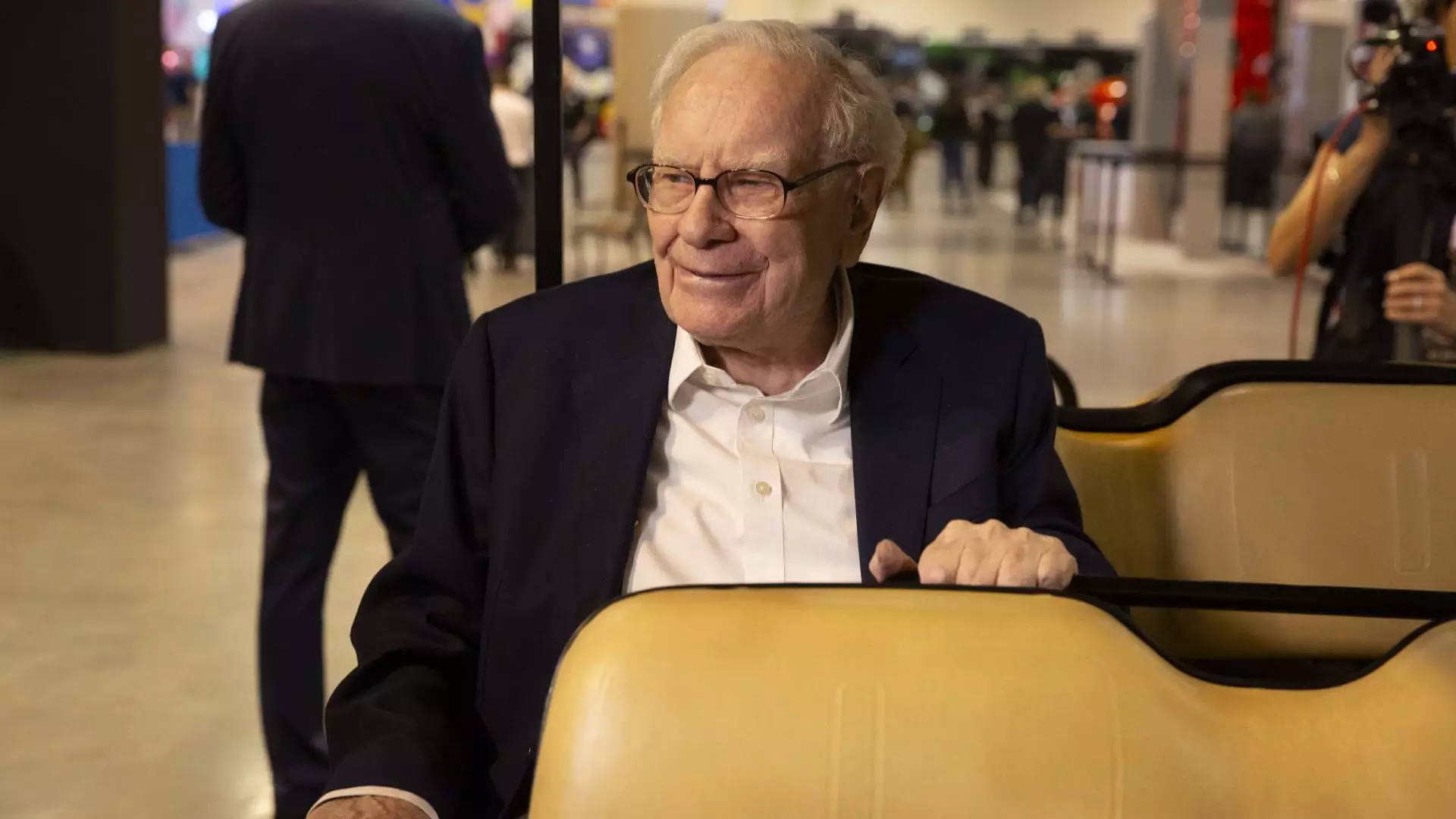Berkshire Hathaway has recently made headlines with a robust report detailing a significant increase in operating earnings. The conglomerate, helmed by the legendary Warren Buffett, revealed a staggering 71% surge, bringing its earnings from wholly owned businesses to $14.5 billion for the fourth quarter. A standout contributor to this impressive performance was the insurance sector, which experienced an extraordinary leap in profits primarily due to effective underwriting practices. However, while operating profits soared, the investment gains from their vast portfolio showed signs of deceleration, clarifying a mixed picture for shareholders.
Investment Strategy: A Cautious Approach
Digging deeper into Berkshire’s investment strategy reveals a complex narrative. Although the conglomerate’s operating profit figures evoke optimism, the stark decline in investment income—falling from $29.1 billion in the previous year to just $5.2 billion—illustrates a potentially concerning trend. This downturn is partly due to Buffett’s strategic shift toward selling equities, continuing a streak of nine consecutive quarters where sales outpaced purchases. The implications of this bold move have resulted in Berkshire’s cash reserves swelling to a historic $334.2 billion, which raises the pressing question for many investors: what does this accumulation of cash portend for future investments?
Buffett’s Perspective: A Candid Explanation
In his much-anticipated annual letter to shareholders, Buffett provided insights into the rationale behind this significant cash buildup. While some may interpret Berkshire’s cash position as a lack of confidence in the stock market, Buffett assured proponents of his investment philosophy that the majority of the company’s wealth remains invested in equities, a sentiment he affirmed without reservation. He noted that the current market conditions, marked by inflated valuations, often leave little appeal in terms of compelling investment opportunities. This selective approach illustrates Buffett’s timeless wisdom in recognizing when patience is required rather than succumbing to the pressures of market euphoria.
Buffett has also put emphasis on his succession plan, particularly his confidant and designated successor, Greg Abek. Buffett likened Abek to his late partner Charlie Munger, emphasizing his capacity to discern and capitalize on equity opportunities in the marketplace. This personal endorsement builds confidence among shareholders regarding the future strategic direction of Berkshire Hathaway. Nevertheless, despite these reassurances, the company has refrained from any share buybacks in the last quarter and thus far into the current year, a move that has left some investors feeling uneasy about the company’s immediate plans.
The mixed reactions from investors indicate a broader pricing-in of uncertainties. Some shareholders exhibit impatience with Buffett’s restraint, longing for concrete steps to utilize the burgeoning cash reserves. In contrast, others resonate with Buffett’s long-standing philosophy of strategic patience, recognizing that a sound financial position primes the company for robust opportunities, especially during unfavorable market conditions. As Bill Stone from Glenview Trust Company remarked, shareholders can find solace in Berkshire’s adept management approach designed to weather economic downturns, which ultimately positions the company to seize advantageous opportunities when crises arise.
Market Performance: An Encouraging Year Ahead
The groundwork Buffett has laid hints at a future ripe with potential, epitomized by Berkshire Hathaway’s commendable performance in 2024—a 25.5% increase in stock value, outpacing the S&P 500 index. This rebound marks a striking recovery for the conglomerate, and preliminary indicators suggest a continuation of this positive trajectory into 2025. As stakeholders reflect on these dynamics, they remain poised to see whether Berkshire’s approach to capital management and investment will yield remarkable results in the unfolding market landscape.
Ultimately, while Berkshire Hathaway’s current course garners skepticism from some corners, the company’s ability to adapt historically has been a hallmark of its enduring success. The intricate balance between patience and strategic investment holds the key to unlocking future growth, ensuring that Buffett’s legacy is poised for continuity—whether driven by his guidance or Abek’s leadership.

